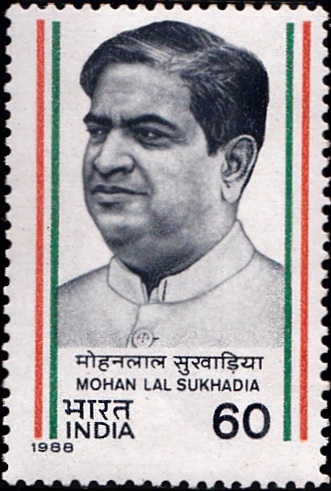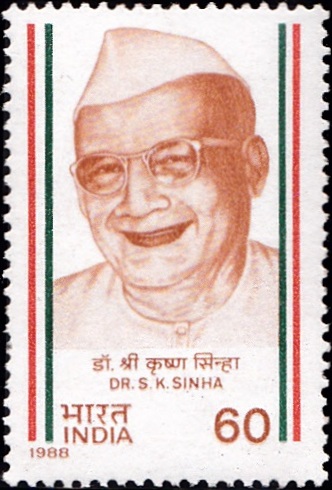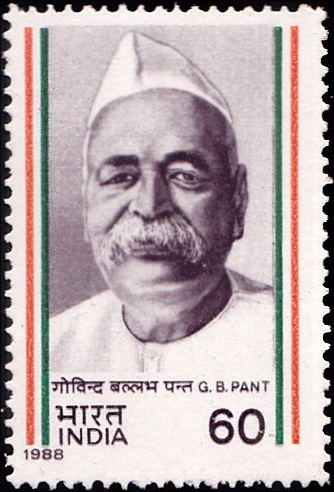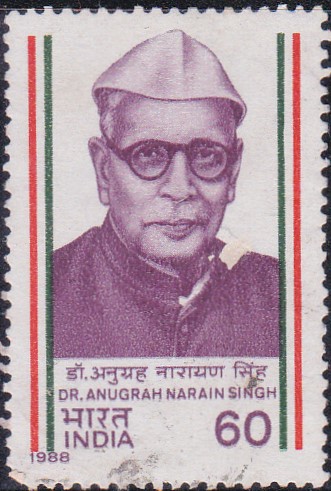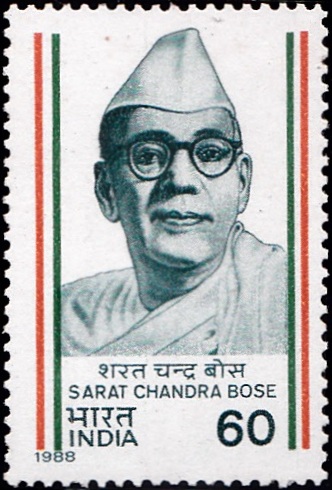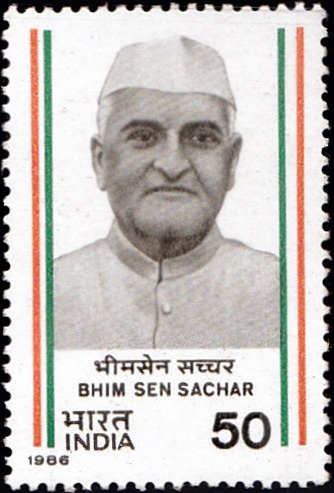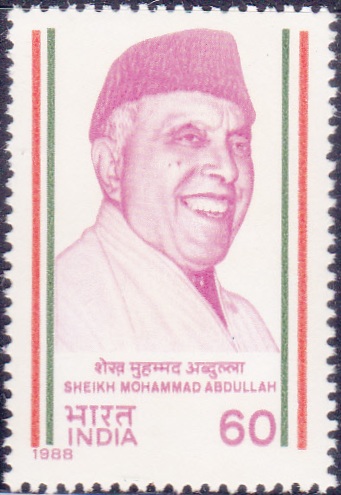
Sheikh Mohammad Abdullah
A commemorative postage stamp on the Death Anniversary of “Sher–e–Kashmir“Sheikh Abdullah, founding leader of the Jammu & Kashmir National Conference :
 Issued by India
Issued by India
Issued on Dec 5, 1988
Description of Designs : The stamp is designed by India Security Press, Nashik Road, the first day cover by Sankha Samantha and the cancellation by Alka Sharma.
Type : Stamp, Mint Condition
Colour : Multicolour
Denomination : 60 Paise
Overall size : 4.06 x 2.73 cms.
Printing size : 3.71 x 2.38 cms.
Perforation : 13 x 13
Paper : Import unwatermarked Adhesive gravure coated stamp paper
Number Printed : 10,00,000
Number per issue sheet : 40
Printing Process : Photogravure
Printed : India Security Press
Name : Sheikh Mohammed Abdullah
Born on Dec 5, 1905 at Soura, Jammu and Kashmir, British India
Died on Sep 8, 1982 at Srinagar, Jammu and Kashmir, India
About :
- Sheikh Mohammad Abdullah was born on 5th December, 1905 in Soura Srinagar, Kashmir. Graduating from Lahore, he obtained the Master’s Degree in Chemistry from Aligarh Muslim University in 1930. In 1931 he began his political career, organising Kashmiri masses under the banner of Jammu and Kashmir Muslim Conference. He converted it into the National Conference in 1939 giving it a broad base and bringing more communities into its fold. He formulated a socio-political and economic programme for the state called “Naya Kashmir“ which was adopted by the National Conference. He sought to emancipate people of the princely states. On the eve of partition he launched the “Quit Kashmir” movement demanding the repudiation of the Treaty of Amritsar between the British and Raja Gulab Singh.
- On the principle of “Sovereignty vests with the people”, he denounced the prince’s ‘divine right’ to rule. He was tried for sedition and sentenced to nine years’ aggregate imprisonment and fined Rs. 1500/-, despite the strong defence by Pt. Jawaharlal Nehru, Asaf Ali, Bhagwan Sahay, Diwan Chaman Lal, Pandit Jai Lal Kilam and others.
- When the Maharaja’s administration collapsed, under the stress of tribal raids in 1947, he was appointed the Head of the Administration. He organised the people to resist the raiders till the arrival of the Indian Army. In those critical days of Kashmir‘s history, when the whole sub-continent was torn by communal strife, Kashmir stayed aloof from communal disharmony.
- In March, 1948, Sheikh Mohammad Abdullah became the first popular Prime Minister of the State. He was also a Member of the Indian Constituent Assembly, a signatory to the Indian Constitution and in 1948-49, a member of the Indian delegation to the United Nations.
- During the long period over which he rendered service to the State, he contributed much to its stability and development. His achievements included termination of the Jagirdari system, abolition of large landed estates, fixation of land ceiling, liquidation of debt and transfer of land to landless peasants. During his tenure, the hereditary rule of the royal family was replaced by the system of electing the head of the government. He also reorganised the education system. He introduced the concept of decentralisation of power by constituting the District Development Boards, where the Cabinet takes on the spot decisions.
- After the 1975 Indira-Abdullah Accord he laid a new foundation for overall development of the State. This land-mark ushered in an era of much needed peace and political stability in the State.
- His eventful life came to an end on 8th September, 1982.


